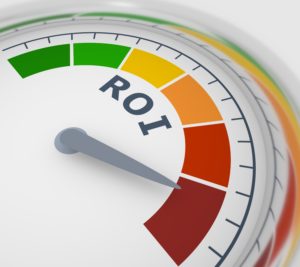As the importance of environmental sustainability continues to grow, waste management companies are faced with the challenge of navigating complex regulatory requirements while also reducing their environmental impact. In this article, we’ll explore the challenges waste management companies face when trying to remain compliant with the Environmental Protection Agency (EPA) and discuss how investing in quality waste management software can help them more easily navigate these challenges.
What Environment Sustainability and Compliance Mean in the Context of the Waste Management Industry
In the context of the waste management industry, environmental sustainability refers to the ability to meet the needs of the current population without compromising the future environment. This means finding ways to reduce the impact of waste collection, transportation, and disposal. There are several ways that waste management companies can do this including:
- Investing in more fuel-efficient vehicles to reduce emissions from transportation.
- Implementing recycling programs to reduce the amount of waste that ends up in landfills.
- Use alternative technologies for waste treatment, such as anaerobic digestion or thermal treatment, to reduce greenhouse gas emissions and promote resource recovery.
Compliance, on the other hand, refers to the need to follow strict regulations and laws set forth by the Environmental Protection Agency (EPA) to ensure that waste management practices are safe and environmentally responsible. The EPA regulates waste management practices to protect human health and the environment from the potential hazards associated with waste disposal.
There are many regulatory requirements that waste management companies must comply with including: obtaining permits for waste management facilities, monitoring, and reporting emissions, and disposing of hazardous waste properly. Non-compliance with these regulations can result in fines, penalties, or legal action, as well as damage to a company’s reputation.
Challenges The Waste Management Industry Faces When Trying to Remain Compliant with the EPA
Changing Regulations
Regulatory requirements can change frequently, making it difficult for waste management companies to keep up with the latest requirements.
Complex Regulations
Regulations related to waste management can be complex and difficult to interpret, which can lead to confusion and mistakes.
High Costs
Complying with environmental regulations can be expensive. Companies may need to invest in new equipment or technology, train employees, and hire consultants to ensure compliance.
Enforcement Actions
Non-compliance can result in enforcement actions, such as fines or penalties, which can be costly and damage a company’s reputation.
Lack of Resources
Small or mid-sized companies may not have the resources to devote to compliance efforts, making it difficult to stay up-to-date with the latest requirements.
Lack of Awareness
Employees may not be aware of the regulations, their responsibilities, or the consequences of non-compliance.
Public Scrutiny
The waste management industry is often under public scrutiny, and any incidents of non-compliance can lead to negative publicity and public backlash.
How Waste Management Companies Can More Easily Navigate These Challenges and Remain Compliant and Committed to Environmental Sustainability
One of the most effective ways for waste management companies to navigate these challenges is by investing in quality waste management software. This software can help companies track and manage their environmental impact, monitor emissions, and maintain records for regulatory reporting purposes.
By using waste management software, companies can more easily stay up-to-date with changing regulations and ensure compliance with complex regulations. Additionally, software can help reduce costs by streamlining operations and reducing the need for manual processes.
Find More Tactics for Navigating Sustainability and compliance
As the focus on environmental sustainability continues to grow, waste management companies must find ways to reduce their environmental impact while also remaining compliant with strict regulations. By investing in quality waste management software, companies can more easily navigate these challenges, reduce costs, and remain committed to environmental sustainability. To learn more about how you can enhance resource recovery efficiency, download our free guide, No Time to Waste: The Ultimate Guide to Enhancing Resource Recovery Efficiency, now!








